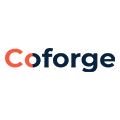10 Key Takeaways from Katalon State of Quality Report 2023
|
Listen on the go!
|
Quality assurance has become the lynchpin for business enterprises to improve the overall quality of software products and services. This helps reduce development costs, time and effort, minimizes rework, and improves the reliability and usability of the software. The State of Software Quality Report 2023 – with the exclusive partnership of Cigniti and Deloitte and based on insights from over 3000 QA teams, provides a comprehensive view of the software quality landscape.
Here are the top 10 findings of this report that can serve as a comprehensive guide for businesses to meet their quality goals.
- Organizations struggle to achieve equilibrium between velocity, cost, and excellence: The report highlights that 40% of respondents in the fast-evolving realm of software development struggle to find the right balance between speed, quality, and cost. To keep pace with the need for uninterrupted delivery and accelerated software release cycles, prioritizing these aspects is crucial. Hence, automation testing enterprises must establish all-inclusive and cohesive QA methods, strategies, and protocols for efficient software quality management.
- QA Teams need to embrace automated testing and code scrutinization: QA teams typically leverage a mix of manual testing, test automation, and code review to accomplish their quality goals. Nevertheless, some QA approaches are frequently employed in tandem. To illustrate, automated unit testing coupled with integration/system testing and code review, alongside test-driven development intertwined with behavior-driven development.
- Test automation and code review are critical: As per the report, a whopping two-thirds of respondents deemed test automation, encompassing automated unit, integration, and system testing, as the most potent method, followed by code review. Notably, the most effective QA techniques and tools happen to be the most widely adopted ones. For instance, test automation serves as a valuable instrument for bug detection and validating software release quality, thereby expediting time-to-market. Conversely, code review aids in minimizing errors that may crop up during the testing phase.
- Organizations need to elevate quality in software delivery: The focus of automated testing services is to augment software quality before release. This objective is validated by the overwhelming number of respondents (73%) who endorsed this approach, with only a meager proportion (6%) expressing a dissenting view. Interestingly, the survey also unveiled that most members of QA teams were discontented with the existing QA practices in their teams. Approximately 63% of respondents felt that their satisfaction levels were either below or average. These results underscore the need for test automation services to adopt and implement superior QA practices and tools.
- Agile methodologies need to be elevated: The report highlighted the widespread adoption of Agile methodologies over the waterfall approach. Respondents working in Agile teams reported higher levels of software quality satisfaction compared to those employing Waterfall or other techniques. A remarkable 41% of Agile practitioners rated their satisfaction levels as either high or very high, in contrast to a mere 30% of Waterfall adherents.
- The scope of test automation is broadening: As per the survey, test automation remains a favored option among the QA fraternity, with a particular focus on regression testing (72%), functional testing (58%), and integration testing (58%). Additionally, automation is extensively employed for other types of testing, including API, unit, performance, usability, and security testing. Notably, most respondents reported utilizing automation for generating test cases, scripts, and data, as well as assessing test results and integrating them with CI/CD/DevOps pipelines.
- Implementing Test automation helps generate ROI early on: According to the survey, test automation emerged as the preferred and most effective QA approach, providing substantial ROI benefits in the initial stages itself. Impressively, nearly 63% of respondents recorded an ROI increase of 20% or more, while 79% achieved a positive ROI within the first year of implementation. Thus, despite the upfront investments involved in adopting automation by software test automation services, the study indicated that the initial expenses tend to reap significant rewards quite swiftly.
- Test Automation in the longer run generates even greater ROI: Adopting test automation can provide QA automation services with a significant ROI within the first year. However, as per the study, the percentage of respondents who achieved an ROI of 20% or higher increased from 58% to 87% when they implemented automation within a year or after five years, respectively. Notably, among those who had adopted automation for five or more years, 20% of them recorded a minimum ROI of 50%, while only 3% of them reported any losses. These impressive findings highlight the potential for test automation to generate substantial returns over an extended period.
- AI-powered test automation has low adoption: The study revealed that the use of AI in test automation is still in its early stages. Only 40% of respondents reported utilizing AI-powered or intelligent features in their automation tools. These AI-based functionalities are applied to a range of testing operations, with the creation of test cases, scripts, and data being the most common ones.
- AI to drive test automation in the future: The survey findings emphasize the need for test automation services to integrate AI-powered features to enhance the intelligence and autonomy of test automation. The primary goal is to implement the autonomous generation of test cases, scripts, and data. Furthermore, AI solutions can aid in detecting and fixing bugs, optimizing test suites, maintaining and restoring tests, evaluating and reporting test results, and facilitating visual testing.
The 2023 State of Quality Report by Katalon has recognized the widespread adoption of test automation by QA teams. The report suggested a gradual transition from traditional automated testing tools to more advanced AI-enabled autonomous testing frameworks. The future of software testing is expected to witness a new phase of intelligent automation, where AI-enhanced test automation platforms and tools will become even more prevalent.
Conclusion
In today’s fast-paced and competitive software development industry, staying ahead of the latest trends is crucial to business success. That’s why the webinar “Software Quality Insights: A Deep Dive into Katalon’s State of Quality Report 2023” is a must-watch for QA teams and businesses.
During the webinar, industry experts from Katalon, Deloitte, and Cigniti have gone beyond the statistics and insights of the report to share their real-world experiences in enhancing and meeting their software quality goals. Attendees have learned about best practices and actionable strategies that QA teams and businesses can implement to achieve higher levels of software quality and drive tremendous business success.
You can watch the session by clicking here.





Leave a Reply